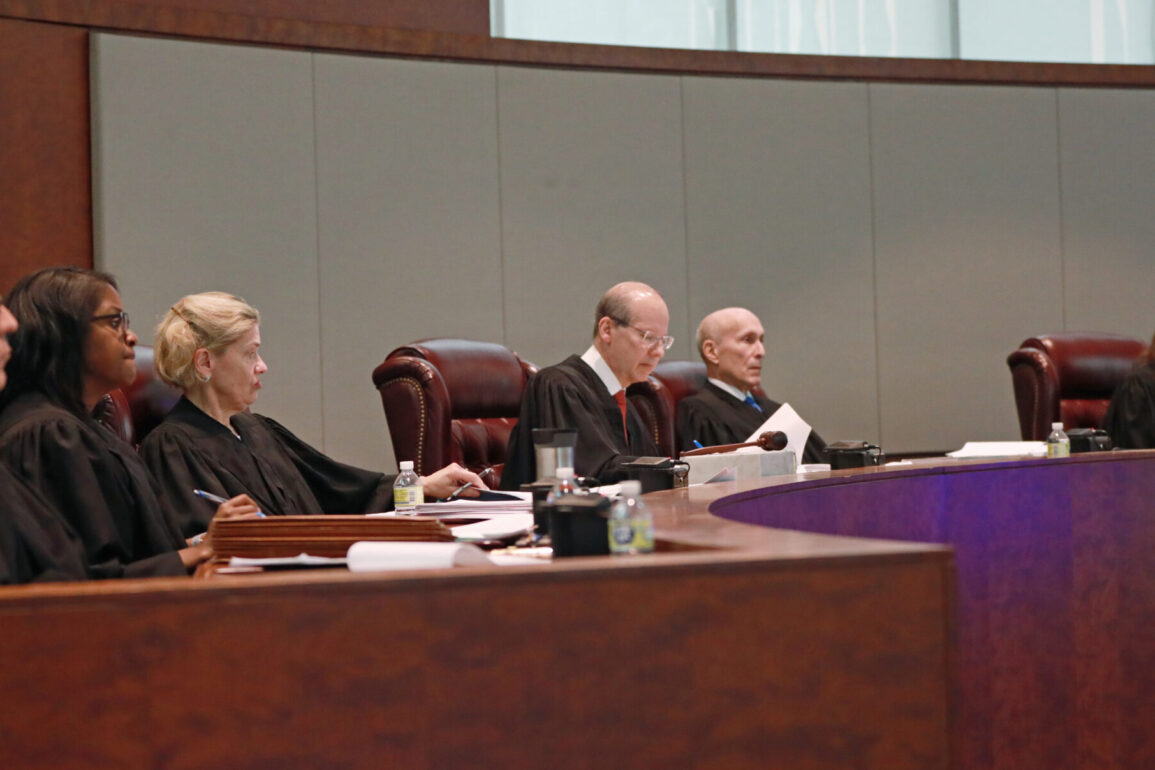
The New Jersey Supreme Court has declined to hear a case that could have expanded sentencing restrictions for juveniles to some young adults, but civil liberties advocates said they will search for another case to press the issue.
The high court this week announced it will not hear a petition lodged by Richard Cain, who wanted the court to require resentencing hearings for those convicted for crimes they committed when they were between 18 and 20, citing gaps in brain development in that group. Resentencing hearings are already required for people under 18 for that reason.
Cain argued he should get a resentencing hearing for a murder he committed in 1991 when he was 18 years old.
“My clients basically take the position that the literature is crystal clear: The line of 18 is not supported by the science, and if we want to say people who are less responsible for their actions deserve a chance to show that they’ve changed, it would be more appropriate to draw that line at 21 than it would be at 18,” said Alexander Shalom, director of Supreme Court advocacy for the American Civil Liberties Union of New Jersey, which joined the case as a friend of the court.
Courts have long recognized that minors’ incomplete brain development justifies lenience in sentencing and other allowances, like a 2005 U.S. Supreme Court decision that barred the death penalty for people under 18 and a 2012 decision declaring life sentences without parole unconstitutional for those in that age group.
But advancements in cognitive science increasingly show brain development continues past the age of legal majority, and the parts of the brain governing judgment, impulsivity, and risk-taking — ones advocates say are particularly meaningful in a criminal justice context — are among the last to mature.
“It’s this age group of 18 to 21,” said Tarika Daftary Kapur, a justice studies professor at Montclair State University. “In some contexts, what we’re seeing is that, in terms of behavior, they function very similar to those who are under the age of 18 because of this late development, because of this continuing development. It’s structural stuff.”
Though emerging adults — those between 18 and 20 — can make decisions, their decision-making in stressful or emotionally charged situations more closely resembles that of a 16 or 17-year-old than a 25-year-old, Daftary Kapur said.
Those findings held true in laboratory settings where stress was relatively low, she said, and the presence of peers exacerbated emerging adults’ poor decision-making.
New Jersey has required juvenile offenders be allowed to petition the court for a new sentence after spending 20 years in jail since early 2022, when the New Jersey Supreme Court found courts must weigh a juvenile’s immaturity and an inability to appreciate risk, among other things, when issuing jail terms.
Because New Jersey’s high court declined to take up Cain’s case, there’s no chance court guidance will expand to include emerging adults soon, but advocates said they intended to continue the fight.
“We were disappointed that the court didn’t take the case, but we think it’s only a matter of time before the court is forced to confront the disconnect between the jurisprudence and the science, and we’re prepared to stay involved to urge them along at every step of the way,” Shalom said.
So far, few states have made sentencing allowances for those over 18. Connecticut allows resentencing for offenses committed under the age of 21, and the District of Columbia has allowed sentencing reviews for those who committed a crime before the age of 25 and had served 15 years in prison.
“There is a lot of movement around the country where states are recognizing the science, and they’re recognizing that it’s not this bright line. The brain just doesn’t stop maturing at 18,” said Daftary Kapur. “It continues, and especially for the things that are most relevant for the justice system in terms of decision-making and risk-taking.”
SUPPORT NEWS YOU TRUST.
This post was originally published on this site be sure to check out more of their content.







